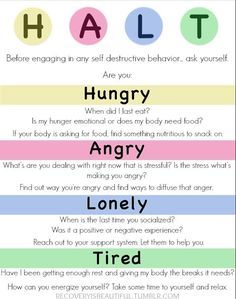Emotional eating is a common phenomenon where individuals turn to food for comfort or as a means to cope with their emotions. It is often driven by stress, anxiety, boredom, or sadness. While occasional emotional eating is normal, it can become problematic when it becomes a regular habit, leading to weight gain, guilt, and a poor relationship with food. Fortunately, there are effective coping strategies that can help promote a healthier mindset and prevent emotional eating from taking over our lives.
1. Recognize Your Triggers
The first step in overcoming emotional eating is identifying the triggers that lead to it. This involves being mindful of your emotions and recognizing the patterns or situations that make you turn to food. By understanding your triggers, you can better prepare yourself to deal with them in a healthier way.
2. Practice Mindful Eating
Mindful eating is a practice that involves being fully present in the moment while eating. It can help you develop a better relationship with food and reduce the likelihood of emotional eating. When practicing mindful eating, pay attention to the taste, texture, and smell of your food. Take small bites, chew slowly, and savor each mouthful. This allows you to fully enjoy your meal and be aware of your body’s hunger and fullness cues.
3. Find Alternative Coping Mechanisms
Rather than turning to food as a coping mechanism, it is important to find alternative ways to deal with your emotions. Engaging in activities such as journaling, exercising, practicing deep breathing, or talking to a trusted friend or family member can help alleviate stress and process your feelings in a healthier manner. Finding hobbies or interests that bring you joy and fulfillment can also serve as productive distractions.
4. Create a Supportive Environment
Building a supportive environment is crucial in overcoming emotional eating. Surround yourself with people who understand your goals and can offer encouragement and support. Additionally, make sure your environment is stocked with healthy and nourishing foods that you enjoy. Having nutritious options readily available makes it easier to make healthier choices when the urge to emotionally eat arises.
5. Seek Professional Help
If emotional eating becomes a chronic problem that significantly impacts your life, it may be beneficial to seek professional help. A therapist or counselor can provide guidance and support as you work through the underlying emotional issues that contribute to your eating habits. They can also help you develop personalized coping strategies and provide valuable tools to maintain a healthy mindset.
6. Practice Self-Compassion
It is essential to be kind to yourself during your journey to overcome emotional eating. Practice self-compassion by acknowledging that emotional eating is a common struggle and that setbacks may occur. Instead of berating yourself for slipping up, treat yourself with understanding and forgiveness. Remember that consistency and progress, no matter how small, matter more than perfection.
7. Prioritize Self-Care
Self-care plays a crucial role in maintaining a healthy mindset and preventing emotional eating. Take time for yourself and engage in activities that bring you joy and help you relax. Prioritize activities such as getting enough sleep, exercising regularly, and practicing stress-management techniques. When you prioritize self-care, you are better equipped to handle emotions and reduce the need to turn to food for comfort.
Emotional eating is a common struggle that many individuals face, but it is not impossible to overcome. By implementing effective coping strategies and prioritizing your mental and emotional well-being, you can develop a healthier relationship with food and prevent emotional eating from controlling your life. Remember that seeking support and practicing self-compassion are integral components of this journey. With dedication and perseverance, you can achieve a healthy mindset and maintain a balanced approach to eating.
